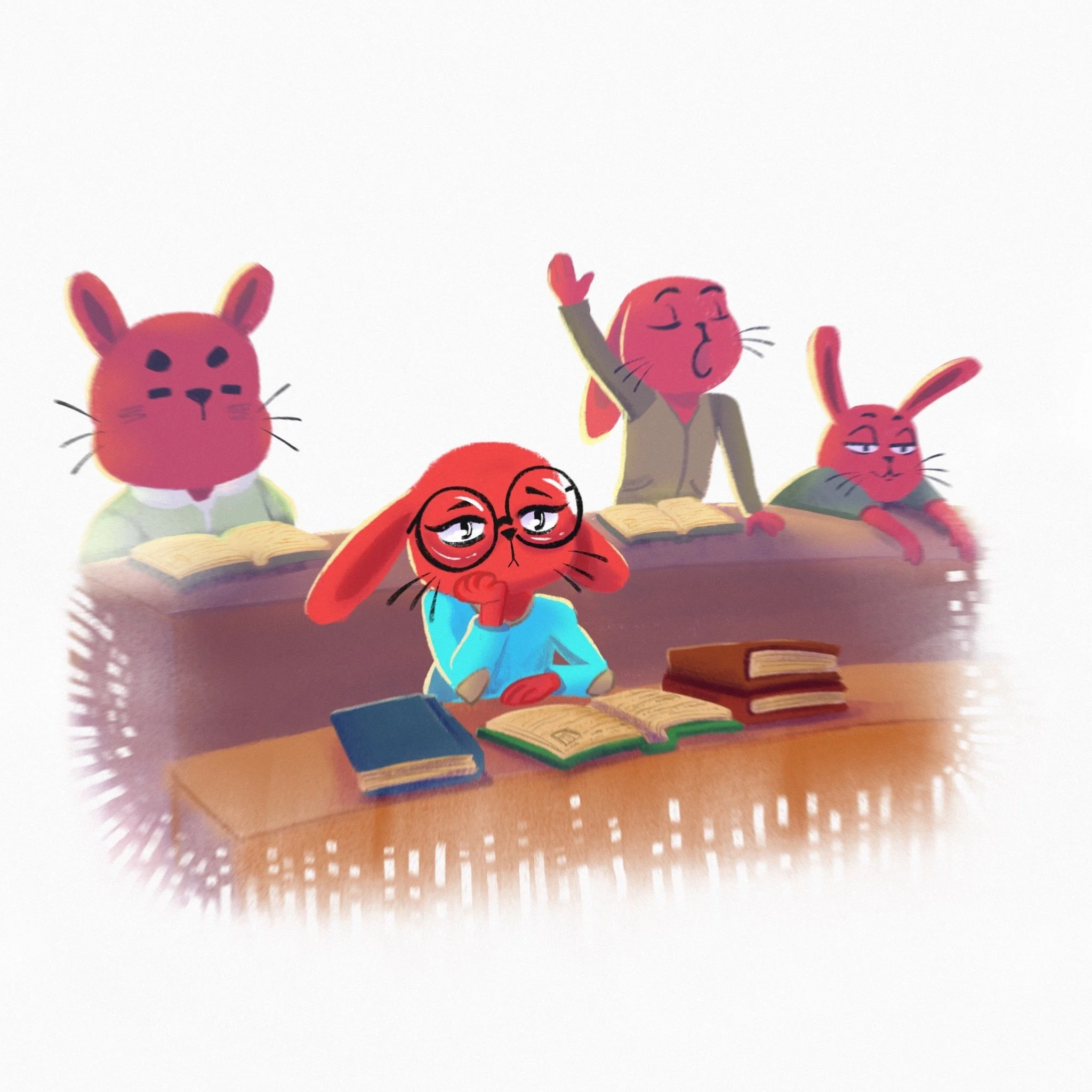Art by Analise Black
What’s better than a fancy degree? Jake Parker, Lee White, and Will Terry discuss what it takes to succeed in illustration, how to balance your workload, and more in this episode.
ASK A QUESTION
JOIN US ON PATREON
Note: We’ve done our best to provide relevant links to products mentioned in this podcast. SVSLearn and the 3 Point Perspective podcast are supported by qualifying purchases. Thank you for your patronage!
SHOW LINKS
Mel Cerri (Brazilian illustrator) interview
Hartford MFA in Illustration program
David Goggins
KEY TAKEAWAYS
Don’t wait to be hired; give yourself an assignment and see it through!
Set goals that get you where you want to go, not goals that make you look good to others.
No class, degree, or outside approval can make you a “real artist.” You are a real artist when you work hard, make art, and share it with the world. Own it!
QUESTIONS
Monkey Mintaka asks, “Should I include book dummies in my portfolio to show I can think through the entire illustration process?”
While it’s important to include sequential art, your portfolio should consist of finished work rather than dummies. If you make a dummy that includes some super polished pieces, you might consider adding those sections; generally speaking, though, it’s best to reserve dummies for their original purposes: mapping out plans and pitching your books.
Tina asks, “I want to sign on with an agency and am refining my portfolio. What does my portfolio need to get into comics, entertainment, or advertisement?”
Comics, entertainment, and advertisement are three very different fields, so we recommend getting hyper-specific about the kind of work you want. No one gets hired to do what they haven’t done before, so if you want to make comics, make comics. Don’t wait for someone to hire you; just start making short stories, sequential art, and comic pages for your portfolio. Fan art is a great addition to show art directors your style and approach using familiar IP.
Your style doesn’t match what most entertainment art directors look for, but it’s ripe for book covers. Add type to some of your illustrations to highlight their potential as cover art. With your skills, you could also have great success creating personal projects on Kickstarter. Your style is outstanding and we’re excited to see where you go!
If you want a PDF of all the essential elements of a portfolio, email will@willterry.com!
Anne Marie asks, “I’m applying for a master’s program in illustration, which requires a portfolio of industry assignments. How should I go about this when I haven’t done any professional illustration work?”
Pause right there! Are you sure an MFA is the best way for you to develop your skills? Many people outsource their success to fancy programs and degrees, but in the end, it’s the ability to work and put heart into your craft that determines how far you go.
Rather than spending thousands of dollars on a master’s degree, we recommend investing your time and effort in personal projects. You’ll learn more by self-publishing a book or showing at conventions than you will in school. If you need instruction, audit classes at your local college or check out the comprehensive courses at SVSLearn.com. This may not hold the same social cred as an MFA, but your success as a self-motivated artist will carry you further than outside approval ever will.
Nady asks, “I keep getting illustration work that pushes my own books to the back burner. How should I balance my workload?”
Your greatest earning potential comes from entrepreneurship, so if you can afford to invest in your books and projects, do it. Try to shift your workload to complete one of your own books a year, even if that means self-publishing. You can still take on other illustration jobs (especially easy work) to provide stability, but the more you can lean into your personal work, the more long-term options will open up to you.
Serif asks, “Should I register my business as an LLC and have a separate bank account for it?”
Registering as an LLC provides legal protection and should be done as early as possible. You should also have a business bank account; it makes tracking business earnings and expenses much easier!
Maria asks, “Can I offer paid art coaching if I’m skilled, but don’t have any degrees or professional experience?”
If you’re good at teaching, go for it! People are hungry for mentorship. As you gain more students, use before-and-after photos of their work to show what benefit you can give.
Melissa asks, “How do you find clients who match your skill level?”
Make the things you want to get hired to make. Then interact with potential clients and art directors; those who are interested in your current work will reach out to you.
Catano asks, “Any tips on launching a newsletter?”
Be clear about what you’re offering. How often will you email? Will your messages be informational, inspirational, or purely promotional? One isn’t better than another, but people want to know what they’re signing up for. Be transparent and consistent.
LINKS
Jake Parker: mrjakeparker.com. Instagram: @jakeparker, Youtube: JakeParker44
Will Terry: willterry.com. Instagram: @willterryart, Youtube: WillTerryArt
Lee White: leewhiteillustration.com. Instagram: @leewhiteillo
Daniel Tu: danieltu.co.
Lily Camille Howell: lilycamille.com
If you like this episode, please share it, subscribe, and let us know your thoughts or if you learned something new!
If you want to be a part of the discussion and have your voice heard, join us atforum.svslearn.com.

